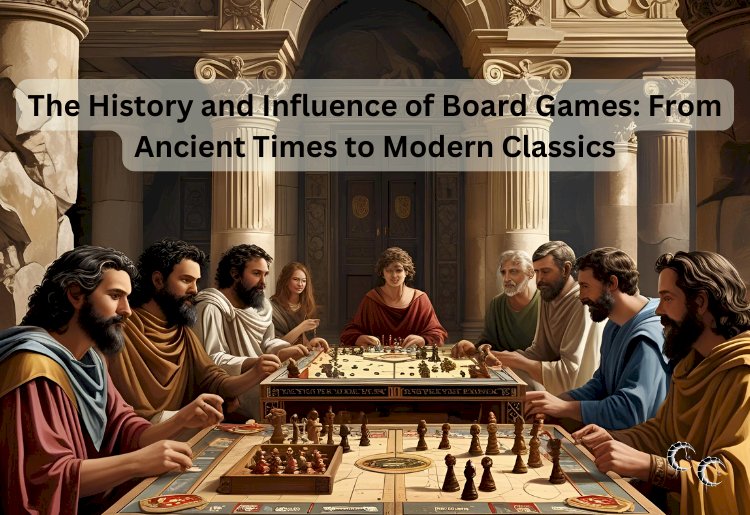The History and Influence of Board Games: From Ancient Times to Modern Classics

Board games have been a beloved form of entertainment for thousands of years, reflecting the cultures and societies that created them. Their evolution offers fascinating insights into human creativity, social interaction, and strategic thinking.
Origins of Board Games
Board games date back to ancient civilizations, with some of the earliest known examples including:
-
Senet (circa 3100 BCE, Egypt): Often considered the world’s oldest board game, Senet was played on a grid of 30 squares and had religious significance.
-
The Royal Game of Ur (circa 2600 BCE, Mesopotamia): This race game involved dice and strategy, showing early uses of chance and tactics.
-
Go (circa 2000 BCE, China): Still played today, Go is known for its deep strategy despite simple rules, symbolizing philosophical ideas.
These early games often served more than just entertainment purposes; they were tied to religion, social status, and education.
Medieval and Renaissance Europe
During the Middle Ages and Renaissance, board games became popular across Europe:
-
Chess, originating in India and reaching Europe by the 9th century, grew to become a game of nobility, symbolizing warfare and strategy.
-
Backgammon also spread widely, its combination of luck and skill making it accessible to many.
These games were not only leisure activities but also ways to sharpen strategic thinking, often reflecting the societal structures of the time.
The Rise of Modern Board Games
The 19th and 20th centuries saw the birth of many games that still influence the industry today:
-
Monopoly (1935) popularized the economic simulation genre and became a household staple.
-
Scrabble (1938) introduced wordplay and vocabulary challenges, blending education with fun.
-
Risk (1957) brought global conquest and diplomacy to the table, engaging players in strategic territorial battles.
This era also saw the rise of family-friendly games and mass production, making board games more accessible to the general public.
Board Games Today: A Renaissance of Strategy and Social Play
The late 20th and early 21st centuries have witnessed a board game renaissance:
-
Eurogames, like Settlers of Catan and Ticket to Ride, emphasize strategy, resource management, and player interaction without heavy luck elements.
-
Party games, such as Codenames and Cards Against Humanity, focus on social engagement and humor.
-
The board game café culture and crowdfunding platforms have expanded the market dramatically, encouraging creativity and niche themes.
Influence on Culture and Beyond
Board games have shaped and reflected societal trends in various ways:
-
Education: Board games teach math, language, logic, and history in engaging ways.
-
Social bonding: They foster communication, teamwork, and friendly competition.
-
Therapeutic use: Games are used in therapy for cognitive development and stress relief.
-
Digital adaptations: Many classic and modern board games have inspired video games, expanding their reach.
Why Board Games Endure
-
Universal appeal: Suitable for all ages and backgrounds.
-
Tactile experience: The physical interaction with pieces and boards creates a unique connection.
-
Unplugged entertainment: Board games provide a break from screens and digital distractions.
-
Community and connection: They bring people together, creating memories and shared experiences.
Conclusion
From ancient boards etched in stone to complex modern strategy games, board games continue to captivate players worldwide. Their history is a testament to humanity’s love of play, competition, and storytelling — a cultural legacy that evolves but never fades. Whether gathering with family or competing with friends, board games remain a timeless way to challenge minds and forge connections.






























